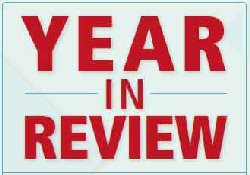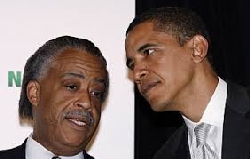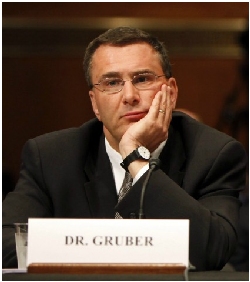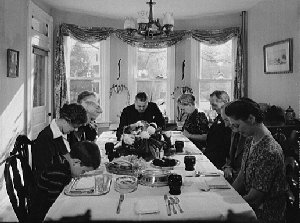- My most popular columns this year.
 This is my last column for the year as I prepare to enjoy the holidays and rest up for 2015. As has become customary, I'm going to use this opportunity to review my top essays from the past year.
This is my last column for the year as I prepare to enjoy the holidays and rest up for 2015. As has become customary, I'm going to use this opportunity to review my top essays from the past year.
As you know, I write on a variety of subjects, such as management, systems, technology, social issues, politics, and observations of our changing world. Sometimes my work is instructional and informative, other times it is controversial or humorous. I certainly hope it isn’t boring. By the number of subscribers I have, their comments, and the hits I have on my web site, I do not believe this is the case.
For my year-end column, I researched my statistics to see which were my most popular articles and speculate on their popularity. Herein, therefore, are my “greatest hits” for 2014.
Without a doubt, this was my #1 column of the year. In it I described the passing of two high school teachers who had a profound effect on me. This allowed me to comment on the long term effect teachers have on their students. True, many of my classmates enjoyed it, but I also heard from several teachers and students on this one. I evidently hit a nerve.
This column discussed the use of punctuation in a job resume. Frankly, I was surprised by how popular it became with the public. Those who took typing classes years ago could particularly relate to it.
This was a personal favorite of mine where I provided a tongue-in-cheek description of what retirement is really like. I received considerable e-mails on this one, most loving it, others resenting how accurate I was in describing the various retirement activities.
I write a lot of political commentary, but this was my most popular as people could relate to the sound bites the president regularly serves up, and how they should be translated.
Here, I provided a humorous description of the "Murphy's Laws" that regularly drive us crazy. The public enjoyed it as much as I did writing it.
A political piece laced with humor. This was another favorite of mine, and a column several people could relate to. One reader said, "So funny Tim - But maybe entirely too true."
This is part of an on-going series of articles where I discuss the dangers of technology addiction. I believe this is something many people tend to overlook.
As part of my consulting practice, I wrote this essay which was derived from management concepts in the acclaimed movie, "Twelve O'Clock High." These simple concepts were taught by the military for many years following World War II.
Another essay from my consulting practice where I discussed the need for customer service. This generated substantial comments.
This was an unusual column where I discussed the unique taste of Italian Red Sauce, and that everyone claims to have the best recipe. I received considerable comments on this one (most purporting to have the best sauce).
Through my hit counters, I also discovered what my most popular column was prior to 2014. Far and away, it was:
I'm not sure why this was so popular, as I was describing an ancient adding machine we had in our office. Evidently, it was the same type of machine many other people used in the past. I believe they missed its simplicity, effectiveness, and sound.
For me personally, 2014 will best be remembered as the release of my "Bryce's Uncommon Sense" series of books, where I discussed politics, management, change, and the American character.
I want to thank all of my readers who commented on my columns this year, both in print and on the radio. Although I may not have time to respond to everyone, rest assured I read all of your comments, both good and bad. Thank you. It’s nice to know people are listening.
Happy New Year.
Keep the Faith!
NOTE: My column will return January 5th
Note: All trademarks both marked and unmarked belong to their respective companies.
 Tim Bryce is a writer and the Managing Director of M&JB Investment Company (M&JB) of Palm Harbor, Florida and has over 30 years of experience in the management consulting field. He can be reached at timb001@phmainstreet.com
Tim Bryce is a writer and the Managing Director of M&JB Investment Company (M&JB) of Palm Harbor, Florida and has over 30 years of experience in the management consulting field. He can be reached at timb001@phmainstreet.com
For Tim's columns, see:
timbryce.com
Like the article? TELL A FRIEND.
Copyright © 2014 by Tim Bryce. All rights reserved.
NEXT UP: WELCOMING A NEW CONGRESS - What to expect over the next two years.
LAST TIME: FINDING PERFECTION IN IMPERFECTION - Beware of the perfect potato chip, peanut, or person.
Listen to Tim on WJTN-AM (News Talk 1240) "The Town Square" with host John Siggins (Mon, Wed, Fri, 12:30-3:00pm Eastern); WZIG-FM (104.1) in Palm Harbor,FL; and KIT-AM 1280 in Yakima, Washington "The Morning News" with hosts Dave Ettl & Lance Tormey (weekdays. 6:00-9:00am Pacific). Or tune-in to Tim's channel on YouTube.
 I do not know what kind of potato chip you like, but I tend to avoid the national brands and enjoy the local variety. For some reason, I have a problem with a perfect potato chip. You know, it is perfectly round and pure in color without a blemish. To me, it seems rather sterile and too good to be true. It lacks imagination (and taste). Instead, I prefer a chip with a little character. Maybe it is slightly burned on the edge or the skin somehow survives the cutting process and remains on the chip. Either way, I find them tastier than the perfect chips.
I do not know what kind of potato chip you like, but I tend to avoid the national brands and enjoy the local variety. For some reason, I have a problem with a perfect potato chip. You know, it is perfectly round and pure in color without a blemish. To me, it seems rather sterile and too good to be true. It lacks imagination (and taste). Instead, I prefer a chip with a little character. Maybe it is slightly burned on the edge or the skin somehow survives the cutting process and remains on the chip. Either way, I find them tastier than the perfect chips.
 In the wake of the Mike Brown shooting and resulting riots in Ferguson, Missouri, President Obama claims to be looking for ways to heal the country. In a speech before the Congressional Black Caucus Foundation's annual awards dinner on November 29th, the President claimed
In the wake of the Mike Brown shooting and resulting riots in Ferguson, Missouri, President Obama claims to be looking for ways to heal the country. In a speech before the Congressional Black Caucus Foundation's annual awards dinner on November 29th, the President claimed  Last month Officer Darren Wilson was not indicted for the death of Michael Brown in Ferguson, Missouri. I listened patiently to the prosecutor's explanation of the decision. As someone living several hundred miles away, I had no reason to doubt the Grand Jury discharged their responsibilities with due diligence. They digested considerable physical evidence and sat through many hours of witness testimonies before rendering their decision. It all seemed rather cut-and-dry to me. Evidently, it wasn't to many others in Ferguson who went on a rampage of destruction. What we witnessed was a wilding where the buildings of innocent merchants were ransacked and destroyed. One can only assume the rabble believed themselves to be above the law and turned to vigilantism.
Last month Officer Darren Wilson was not indicted for the death of Michael Brown in Ferguson, Missouri. I listened patiently to the prosecutor's explanation of the decision. As someone living several hundred miles away, I had no reason to doubt the Grand Jury discharged their responsibilities with due diligence. They digested considerable physical evidence and sat through many hours of witness testimonies before rendering their decision. It all seemed rather cut-and-dry to me. Evidently, it wasn't to many others in Ferguson who went on a rampage of destruction. What we witnessed was a wilding where the buildings of innocent merchants were ransacked and destroyed. One can only assume the rabble believed themselves to be above the law and turned to vigilantism.
 MIT Professor of Economics and architect of Obamacare, Dr. Jonathan Gruber, put his foot squarely in his mouth when a video recently surfaced where he was quoted as saying about the Affordable Care Act, "Lack of transparency is a huge political advantage. And basically, call it the stupidity of the American voter or whatever, but basically that was really, really critical for the thing to pass." In other words, the American voter was taken for granted and assumed to be incompetent to manage his own affairs. More importantly, Gruber's comments signifies the arrogance of the left and to what lengths they will go to pursue their hidden agenda.
MIT Professor of Economics and architect of Obamacare, Dr. Jonathan Gruber, put his foot squarely in his mouth when a video recently surfaced where he was quoted as saying about the Affordable Care Act, "Lack of transparency is a huge political advantage. And basically, call it the stupidity of the American voter or whatever, but basically that was really, really critical for the thing to pass." In other words, the American voter was taken for granted and assumed to be incompetent to manage his own affairs. More importantly, Gruber's comments signifies the arrogance of the left and to what lengths they will go to pursue their hidden agenda.
 The following are excerpts from the Introduction of my new book,
The following are excerpts from the Introduction of my new book,  One of the reasons I enjoy Thanksgiving is because it is one of the few holidays where we do not have to exchange gifts. We simply get together with family and friends and enjoy the company. Maybe we'll watch a parade on television or perhaps some football, but it's the communal experience which I enjoy the most. For some reason, the preparation of the meal is less of a chore and more of a pleasure, probably because we realize it is designed for many people on a special day.
One of the reasons I enjoy Thanksgiving is because it is one of the few holidays where we do not have to exchange gifts. We simply get together with family and friends and enjoy the company. Maybe we'll watch a parade on television or perhaps some football, but it's the communal experience which I enjoy the most. For some reason, the preparation of the meal is less of a chore and more of a pleasure, probably because we realize it is designed for many people on a special day.
 It is not often I discuss something as banal as dog poop, but I recently witnessed an incident which caused me to think about it.
It is not often I discuss something as banal as dog poop, but I recently witnessed an incident which caused me to think about it.